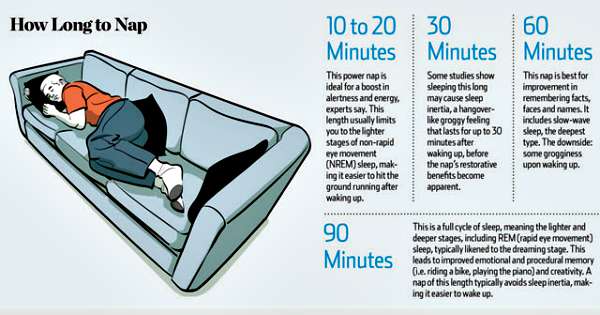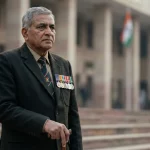A Good Night’s Sleep and SSB Interview. Hello aspirants. I could understand the thought in most of your minds while you read the topic – “What on earth is an article on sleep doing on a site of SSB tips?” or just “Is SSB and sleep really related?” Long answers short-Yes, sleep is majorly related to cracking SSB, I’ll get on to it later as you read on.
While I listen to many of my friends during my exam day that they’ve been studying the whole night, I tend to become nervous for myself. But, after the exam, the phrases which are common to my ears from the same tongues are “Yaar itna padha tha, sab bhool gaya”, “Kuch aisa diagram tha, yaad nahi aa raha tha. Itna practise kiya tha yaar, sab brainwash ho gaya exam time pe”. But my exam seem to go perfect while I didn’t even woke the whole night studying.
To explain it, I want you to imagine this situation: It’s 4 a.m. in the morning and the big test of NDA/CDSE/AFCAT is in 6 hours followed by the typewriting test you’ve been practising for long, in your school/college. You have been preparing for days and still don’t feel ready. You have to practise the typing a little more and learn/revise those formulae/methods. What’d you do? Take another cup of coffee and get back to it, cramming and practising? Pray to god to time travel you in the past, again? Or pray for the test to be postponed so that you could manage the other by the morning?
Hoping that everyone of you have had experienced this situation atleast once in life (if you hadn’t, then you inspire me), but believe it or not, you might be better off closing everything and get into that warm, comfortable and cozy blanket to have that much called-for sleep for the rest of the night in that soft-coushiony bed.
Sleep occupies nearly a third of our lives, but many of us give surpirisingly little attention and care to it. This neglect is often the result of a major misunderstading: sleeping isn’t a lost time or a way to rest when every work is done; instead, it’s a critical process during which your body regulates the functions of your respiration and circulating blood for growth and immune response. Well, it’s great, but you can worry about it after your test, right? Well, not so fast. It turns out that sleep is also crucial for your brain with a fifth of your body’s blood being channelled to it. And what’s going on while you are asleep is intensely active period of restructuring. That’s crucial for how our memory works.
The hippocampus (innermost memory center for long term memory retention) of your brain is crucial for long term memory retention of declarative memory (learning formulae) rather than procedural memory (practising by repetition like typing). The sleep is composed of four stages: Stage 1, Stage 2, Slow wave sleep (SWS), Rapid eye movement (REM)-The deepest of all. Different stages of sleep helps consolidate different types of memories. During the non-REM cycle or the slow wave sleep, the declarative memory (learning of formulae) is stored temporarily in the interior part of the hippocampus, which, with a good night’s sleep helps in permanent retention in the cortex (outer part of memory). The REM on the other hand, focuses on the procedural memory.
Stage 1 and 2 are generally of 20-30 mins in which you didn’t even felt like you were asleep, but it’ll give you a good boost for the rest of the day, hence called the POWER NAP. Slow wave sleep is of about 1 hour which helps your declarative memory and you feel dizzy when you wake. The Rapid Eye Movement is of 1½ hour in which all the bodily functions and procedural memory gets healed.
So based on studies, going to sleep three hours after memorizing your formulae and one hour after practising your typing will be the most ideal time of all.
Also, you will not need an alarm to wake up if you sleep by repeating the time by which you want to wake, like, to wake up at 5 in the morning, keep on repeating ‘I’ll have to wake up in the morning by 5’ while you lie on your bed which will reset your internal clock. This is the magic of your subconciuos mind. (Try it tonight!). I’ll not go in much detail of this.
This, indeed helps in the long term. Research also shows that by just picturing your long term goals while sleeping, you are 76% more likely to achieve that goal than by the others. If you want to fly a Su-30 MKI, picture yourself in the cockpit of the plane; if you can’t, just repeat ‘I will fly a Su-30 one day’ or ‘I’ll clear the SSB one day’.
Lemme make one thing clear here; being regular, consistent and determined throughout is the key to success. No great stories and success are achieved overnight.
This article particularly focuses on the amount of sleep required by the candidates. For general, a good night’s sleep consists of atleast four to five REMs (1½ X 4 =6). Hence, a minimum of six hours will do it and a maximum of 7½ to 8 hours. Also, as stated earlier, it may not be appreciable in short term, but will make a lot of difference in long term.
So you can see now that skipping on your sleep not only harms your long term health but actually makes it less likely that it retains all the formulae and practise from the previous night. In a nutshell, a good night’s sleep will help you wake up with a new and improved brain, ready to face new challenges. So go ahead and crack those SSBs.
Any queries and questions regarding this? You can reach out through my social links below.













